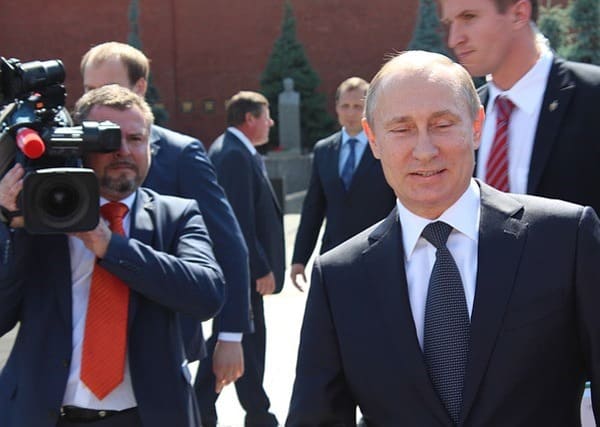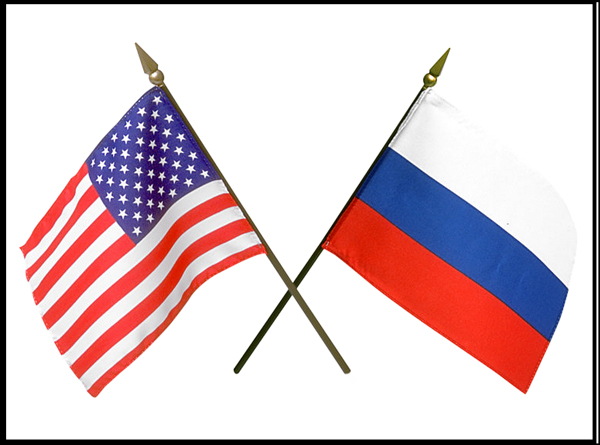State interpreters help bridge the language gap during meetings, summits or conferences. But presidential interpreters not only facilitate communication between languages—they also serve important roles. They act as confidants, record keepers, de facto diplomats and fact-checkers! Certified interpreters like them also witness and take part in pivotal moments of history. This was the case for Marina Gross, a veteran State Department interpreter, who interpreted Vladimir Putin’s Russian for President Trump during a private conversation in Helsinki, Finland. Shortly after, Democrats began to suggest that it would be necessary to bring Gross in for a hearing, and even passed a motion for a subpoena so she’d be required to tell the public what transpired. The event sparked a discussion about the role of interpreters that has gained traction until today. Read more about Trump-Putin’s meeting and the high-pressure work of state interpreters!
Marina Gross: One of Many State Interpreters Shoved into the Spotlight
On July 17th, Senator Jeanne Shaheen, a Democrat of New Hampshire, called for a hearing with Marina Gross. During the private meeting, Gross provided Russian interpreting for what Putin said. Meanwhile, Putin’s interpreter provided Putin with English interpreting services for Trump’s part of the conversation. Gross was the only other American who sat in besides President Trump, and therefore the sole reliable witness to the nearly two hour-long conversation between the two world leaders.
The secrecy surrounding the meeting has raised speculation, which has prompted Democrats and the public to demand answers about the agreements that were reached. This notion has been seconded by other Democratic lawmakers, such as Rep. Joe Kennedy of Massachusetts, who claimed Congress should subpoena the translator if the White House refuses to reveal what happened during the exchange. Specifically, Democrats want to see Gross’ notes. In photographs from the summit meeting, Gross was clearly photographed with a pen and notebook on her lap.
On July 19th during a public hearing on China’s threats to the American government, Republicans on the House Intelligence Committee voted against the Democratic motion to subpoena Gross. Republicans expressed concern that bringing Gross would set a bad precedent of hauling in interpreters for bilateral meetings with foreign officials and leaders. They believe doing so could prevent other leaders from wanting to meet privately with U.S. presidents in the future. They also claimed interpreters are not policy makers, and in some cases, if they are contracted and included in these sensitive meetings, it creates a potential security concern.
Qualifications of State Interpreters in the White House
It’s not easy to become an interpreter like Gross. Liaison, seminar and conference interpreters are the three main types of interpreters employed by the government. They often must be able to work at conference interpreting level. White House interpreters are provided by the Office of Language Services, and they must go through a series of tests to get the interpreter certification they need to qualify to work.
The evaluation consists of two main parts: an interview and an interpreting skill test. They’re also tested on their arsenal of general knowledge of US history, society and culture, and their ability to handle situations with international visitors. Those that go through the test are often interpreters with prior experience. They’ve often undergone interpreter training in interpreter programs or have obtained an interpreting certificate by joining interpreter classes. There’s also a limited number of times aspiring White House interpreters can take the test. Because of the rigorous evaluation process, interpreters of Gross’s caliber are in high demand.
Code of Conduct of State Interpreters
Interpreters like Gross work strictly in the shadows, providing simultaneous interpreting in real time. However, their work is of great importance, especially during high-stakes discussions where an error on verb tense or the misuse of a single world could lead to serious consequences. They’re often given the same briefing books important figures like the presidents get so they will understand the context of the assignment. Of course, the best interpreters not only interpret, but also pick up on body language, social cues and provide crucial insights during conversations. They also take notes that help them do their job. Sometimes, these notes are used after to reconstruct and see where the conversation went right or wrong!
Interpreters pride themselves on their discretion and invisibility. Just like other professions, they follow a formal and personal code of ethics. They always ensure they finish a project by a certain deadline and they never take projects for which they’re not qualified or certified for (and when this happens, they may choose to pursue specific translation services certification to qualify.) The most important code of all is keeping the client’s information confidential. The idea of Gross testifying or sharing her notes may seem relatively simple, but for her to do so would violate ethical standards that interpreters follow. In fact, she would violate a strict confidentiality code similar to lawyer-client privilege. This action could end her career!
Surprisingly, this issue isn’t new. A similar discussion revolving around the role of interpreters in negotiations also happened last year in 2017. It’s unclear if Republicans, who control the witness list for committees, would ask Gross to testify. However, Secretary of State Mike Pompeo is scheduled to testify in front of the Senate Foreign Relations Committee on what exactly happened in Helsinki this Wednesday.
About Language Connections:
Language Connections is one of the top language service companies in the US. Over the last 30 years, we’ve focused on providing the best business translation services, interpreting services, as well as interpreter training and customized language training programs. In addition to top-tier corporate language training, we offer certified corporate interpreters and professional business translation services in 200+ languages. Our network includes linguists with backgrounds in all major industries. They’re ready to meet your needs, whether they’re for technical translation services, legal translation, government translation services, international development translation services, education translation services, life sciences translation, or something else. Reach out to us today for a free quote on our cost-efficient and timely translation services, interpreters, or other linguistic services.
Language Connections LLC
2001 Beacon Street, Suite 105,
Boston, MA 02135
Phone: +1-617-731-3510
Email: service@languageconnections.com



